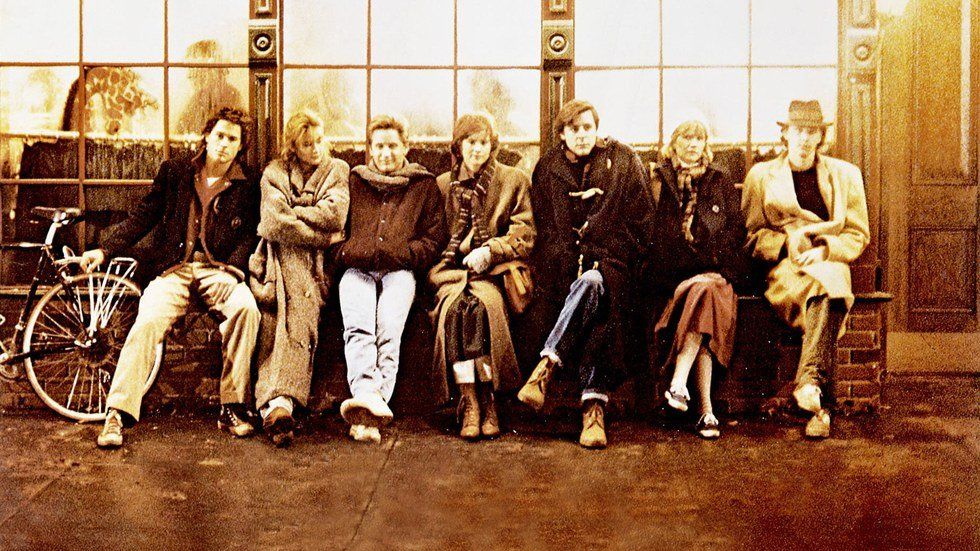Research shows that high-achieving, low-income students are less likely to pursue higher quality education at prestigious universities. Today, in the wake of crippling student debt, it has become commonplace for the brightest pupils to reject the “Ivies” in favor of guaranteed, full-tuition packages in state. This sacrifice of opportunity allows our nation’s finest resource to languish in taxing, crowded classrooms. Forget for a moment about the grade points — according to the Jack Kent Cooke Foundation, these economically disadvantaged intellectuals plunge further into disparity when enrolled alongside high-income peers.
Put it into perspective: When you’re worried about putting food on the table, late night shifts take priority over late night studying. What makes this occurrence inconceivable is that many colleges and organizations are aware of this and make little effort to alleviate students’ financial burden every day.
In other words, this is unacceptable. As a nation, we have an obligation to stimulate, cultivate and maintain positively all resources available for our expenditure. The bright minds of young students are the key to innovation and insurance of a greater tomorrow. It is completely unreasonable to assume that future generations must solve present day issues when they, as students, cannot afford the necessary education needed to solve said problems.
We can’t afford to be complacent about the waste of bright minds. Only we, as citizens of America, can push for academic emphasis. We must invigorate those with funds to spare to back young scholars as they pursue greater achievements. No human being can succeed without a basic support system. In the case of the poverty-stricken high-achiever, financial support is something of a myth akin to a unicorn.
Luckily, it doesn’t take a rocket scientist to organize and take stock of the resources we already have available. To accomplish this task, the tools we have are various scholarship foundations, while the means to execute financial backing exists in strong public outreach. Not to get hopes unreasonably high, because not every brilliant student will be reached. But, opening up another door for one person is better than none. Brilliance has a tendency to affect others positively. One aided scholar will inform another, who in turn, will tell three others and so on. Once the young academic community builds confidence from steady societal support, we will know we have found success.
The JKC Foundation states that a high-achieving low-income scholar thrives in a community of similar peers, academic counsel, and strong financial backing. These resources ease the burden forced upon those who bear intelligence and great disadvantage. We can create lifetimes of excellence and prosperity by extending more compassion into a garden aching to grow.
We need to get schooled. As a society, we must tend to the seeds inevitably planted each day and think critically on the ingredients each unique pod needs to flourish. We need to breathe confidence into the gasping lungs of scholars drowning beneath societal issues they did not ask to be born into. We need to allocate our resources fairly and frequently. We need to raise awareness of grant, scholarship and internship opportunities to those who would benefit the most.
Most importantly, we need to believe in our students by encouraging them to strive for higher achievements and reckless adoration of new knowledge. An intellectual community is best defined by its treatment of those just on the beginning of their academic journey.
Frankly, it will not be easy to overcome the academic disparity. Students have developed apprehension and an understandably high level of caution when it comes to scholarships or grants. In our day and age, “free money” is practically an oxymoron. No matter the level of outreach, there will still be more cynics than believers for years to come. On top of that, socio-economic, language or cultural barriers aren’t obstacles torn down in a night. There are plenty of inter-familial or local pressures from the environment that may add to a student’s reluctance to accept the education they deserve. It will require strong unity, interest and steadfast execution of public support for these individuals to finally believe in a person defined beyond their economic status.
“Natural selection will not remove ignorance from future generations."
-Richard Dawkins.
While Dawkins refers to social awareness, this quote is every bit as applicable to the epidemic of disadvantaged bright pupils. Poverty is not meant to be an inherited trait. Yet, our society has marginalized and ostracized those who first fall into it. It should go without saying there is a moral obligation to provide equal opportunity for every human being to achieve the means necessary to end their cycle of poverty.
The promise so many immigrants and refugees whisper as they step foot on American soil is opportunity. Opportunity is the hope that has unfailingly been passed down from grandparent to parent and from parent to child. This promise, held dear to hearts of every citizen, dims in brightness each time a young mind wilts in neglect or insufficient stimulation. We effectively dim the future of possibility each time we allow students to choose between the money and the education. Without a doubt, if there’s a single shred of morality in our bodies, we owe it to our children and our scholars to ensure that they may traverse a path only plagued with long nights of studying and appropriately challenging finals. We owe it to our future generations by laying the foundation of preservation.
More importantly, we owe it to ourselves. How could we live knowing we chose ignorance rather than our future?





















